How can organizations and educators effectively collaborate for greater student success?
Our December Collab Lab conversations explored the benefits, needs and hurdles of collaboration on student learning experiences. One of the major hurdles for teachers to be able to create truly engaging real world experiences with students is the challenge of involving the appropriate outside expertise at the appropriate time in a student’s project. And if the student is encouraged to determine when that additional expertise would be helpful, things get even more messy. But since we all recognize the value of bringing in that outside perspective, what are some (proven) approaches that teachers could adopt as they venture in the world of student driven learning experiences?
Our December 2021 Collab Lab (what’s a Collab Lab?) provided an opportunity to explore how we might leverage outside resources and begin establishing relationships to shift the use of ‘mentors’ from a 30 minute ‘song and dance’ to a meaningful semester long mentor relationship that draws out the best in each student?
After taking some time to to explore the participant’s own experience with collaboration, either as an educator or as a community partner, we asked the starting question to some great conversations: How can we create the circumstance for effective collaboration amongst teachers and (supportive individuals at) community organizations?
Common themes highlighted by all groups were:
- Communication, including feedback, is a major factor in successful collaboration when it comes to blending learning inside and outside the classroom;
- Commitment to the relationship and a plan for ongoing involvement;
- Flexibility of participation on a week by week basis (‘school’ is a messy workplace);
- Clarity around who is available as a partner and what kind of input and commitment is offered;
Nothing too stunning, and in fact these are core aspects of any successful and sustaining collaboration in the business world and public-private partnerships. What is unique is that these conversations provided an opportunity for educators and community members in non-profit and corporate settings to hear from each other what makes (common) sense to pursue if we are serious about working together for the greater benefit of the students in Milwaukee. What makes this more challenging? The complex environment we’ve created that we call ‘school’.
This list is not claiming to be complete, but it does provide several worthwhile entry points for further exploration if we want to come together in an (STEM) ecosystem to gradually implement the type of learning that we know 21st century students need exposure to if we want to develop the talent our communities are in desperate need of. A great starting point for further exploration of ‘what’s possible’!
Interested in this type of conversation and being part of creating the shift in education we need?
Join our Collaborative Learning Community ‘inspirEd‘ and become part of creating the future of education.
What should effective partnerships offer teacher, students and partners?
Here is what the attendees uncovered:
| Teachers |
Partners |
Students |
| setting expectations of what’s possible |
setting expectations of what’s possible |
continuous learning made possible |
| involving partners enriches the curriculum |
enables partner to better meet funder standards |
getting out of the classroom in a meaningful way |
| It addresses the need for funds for activities (and PD) |
offer culturally responsive practices |
opportunity for hands on activities, leading to exposure to careers
|
| having a list of partners to pull from |
exposure for educators and students |
stimulating creativity and curiosity |
| Receive feedback from partner |
receive feedback from educators |
active engagement in the learning: “I wonder….?” |
| continuity & longitudinal experiences |
flexibility to work with school/grade needs |
accountability to learning outcomes
|
| sustaining relationships through transitions |
plan of action for building ongoing relationships |
more than one-time experiences |
| willingness to try |
Connect with the greater community – schools, families |
open-ended-ness of learning and exploring |
| pre-planning events |
open, collaborative communication |
engagement with people and community |
| ideas for what to include in teaching through learning experiences |
who are the partners and when are they available? |
opportunity to explore the Why? |
| community involvement in learning experiences |
clear idea of the goal of partnering with teachers |
STEM and business careers exposure |
| sharing experience with ‘being involved’ |
sharing experience with ‘being involved’ |
sharing experience with ‘being involved’ |
| exposure to work, careers, etc. |
exposure needs and challenge of teaching |
exposure to mentors, work and concepts |
| |
meaningful volunteer opportunities |
builds hope and ability to dream about their place in the community |
| |
hearing from others what an organization might do for the community |
|
| |
talent recruiting |
|
What is needed to develop an effective collaboration for student success?
There are a lot of good intentions among those early to recognize that collaboration with teachers in real world focused student projects present great benefit and opportunity. But how do we practically get to a place where we can start realizing those benefits?
The attendees have the following suggestions:
| Teacher |
Partner |
Student |
| access to partners |
access to teachers |
Access to mentors ‘from the real world’ |
| budget |
available budget for interaction at middle/high school level |
learning takes time |
| curriculum alignment |
available time to volunteer |
training |
| available time to devote |
experience with mentoring (middle school) students |
set behavior goals (accountability) |
| Training (pbl, technology, management) |
individual commitment to engage for the duration of a student project |
how to drive their full engagement |
| management support |
administration/upper management support and involvement |
commitment to learn |
| transportation and other logistical resources |
time |
co-teaching |
| commitment to support |
alignment to learning standards |
alignment to learning standards |
| motivation |
a coordinators |
cross curricular / interdisciplinary activities |
| energy |
growth mindset |
growth mindset |
| set of goals for collaboration |
patience |
class visits |
| a list of ‘what’s possible’ |
|
|
| willingness to take risks |
|
|
| Patience |
|
|
| growth mindset |
|
|
What gets in the way of successful collaboration ?
We all can imagine the sorts of things that get in the way of teachers doing their best teaching and community partners staying committed over time. What stood out for me was
A lack of advocating for the benefits of hands-on learning experiences through stories of student success, both in the school context and in the community partner organization.
Here is the list our conversation participants developed
| Teacher |
Partner |
Student |
| understanding of different learning styles |
understand (student) learning styles |
learning styles |
| experience with different teaching strategies |
funding in support of real world learning and your employee participation in it |
available time (none!) |
| funding |
do you have an overall engagement strategy |
motivation to learn |
| time |
how much time can you afford to dedicate? |
learning to get and receive feedback |
| understanding the audience |
understanding your audience (teachers) and their familiarity level with modern business |
language/disability |
| getting feedback |
giving and getting feedback about what works |
background knowledge |
| limited network / contact list |
matchmaking of relevant expertise |
need of deeper processing (time to process and follow through) |
| awareness of available resources and opportunities |
logistics |
Reflection |
| miscommunication |
miscommunication |
hierarchy of needs |
| logistics |
lack of knowledge |
relatability |
| Creating the stories of ‘why’ |
one-sided decision making |
|
| unwilling to showcase opportunity |
willingness to make involvement mutually beneficial |
|
| Professional Development (related to pbl/domain/tech) |
admin involvement |
|
| expectations for students and partners |
corporate structure |
|
| |
restrictive funds |
|
Would you like to join these conversations with teachers and community partners?
Consider participating in upcoming Collab Labs. Every 2nd Thursday of the month during the school year. RSVP on our Collab Lab page
Not a member of inspirEd yet? Join the Collaborative Learning Community ‘inspirEd‘ and continue this and other conversations with your peers from across Milwaukee and beyond who are experimenting with and sharing what works for our students.
Acknowledgements
Thanks again to MSOE’s STEM Center for hosting Collab Labs this season and to our featured participants for the experience and insight they brought to the discussion:
Bev Bryant – Park Naturalist at Wehr Nature Center
Catrina Crane – Director of Workforce & Business Solutions, Menomenee Valley Partners
Elizabeth Taylor – Director of STEM, MSOE
Graciela Hernandez – Senior Universal Banker with Summit Credit Union
Natalia Hernandez – Outreach Specialist, the Harbor District
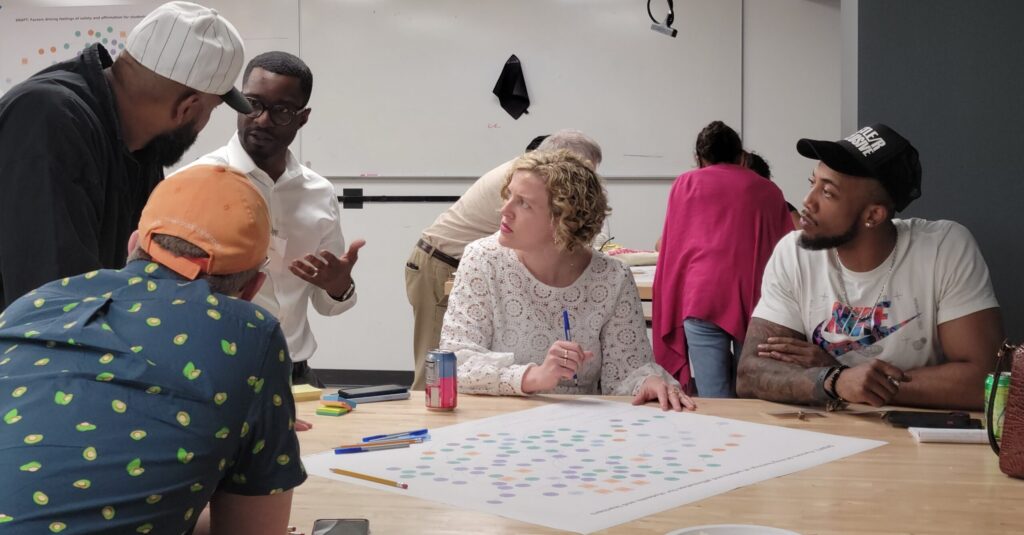


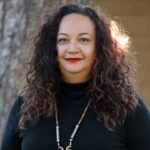 Bevin is a seasoned social entrepreneur and educator, who is deeply committed to holistic education and workforce development. She drives initiatives to equip individuals with skills for success in today’s economy through strategic partnerships and mentorship. With a background in nonprofit leadership and education, Bevin spearheads innovative programs that prepare students and adults for careers and foster community engagement. She believes in the transformative power of education for building a more just society.
Bevin is a seasoned social entrepreneur and educator, who is deeply committed to holistic education and workforce development. She drives initiatives to equip individuals with skills for success in today’s economy through strategic partnerships and mentorship. With a background in nonprofit leadership and education, Bevin spearheads innovative programs that prepare students and adults for careers and foster community engagement. She believes in the transformative power of education for building a more just society.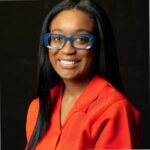
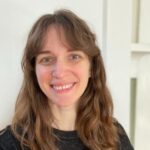 Jasmine and Mandi are co-leaders of
Jasmine and Mandi are co-leaders of 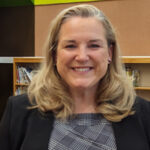 Deidre joined the School District of South Milwaukee in July of 2023. Prior to that role she served as the Assistant Superintendent, Director of Leadership and Learning, Coordinator of Special Education, instructional coach, and classroom teacher. Her philosophy of education has always been to empower every learner with an absolute faith in themselves to be curious, try anything, work hard and prepare for life after school. She models creating inclusionary communities when she coaches teachers and leaders and as an Associate Professor at the University of Wisconsin-Milwaukee to be a part of growing into the next version of what we need for kids. She is also a contributing author of
Deidre joined the School District of South Milwaukee in July of 2023. Prior to that role she served as the Assistant Superintendent, Director of Leadership and Learning, Coordinator of Special Education, instructional coach, and classroom teacher. Her philosophy of education has always been to empower every learner with an absolute faith in themselves to be curious, try anything, work hard and prepare for life after school. She models creating inclusionary communities when she coaches teachers and leaders and as an Associate Professor at the University of Wisconsin-Milwaukee to be a part of growing into the next version of what we need for kids. She is also a contributing author of 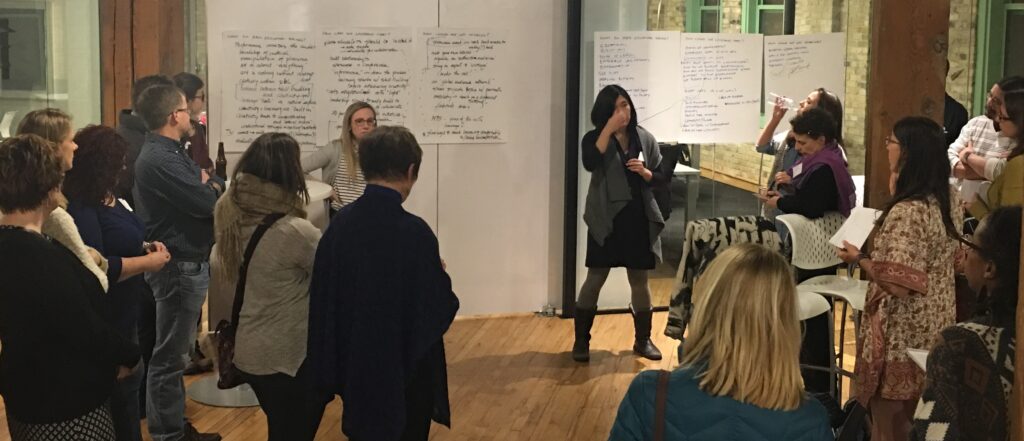
 PJ has worked in education for over 13 years with the majority of that work in Milwaukee schools. He has spent time working with students directly, as coach for educators, and a program director. Playworks’ mission is to improve the health and well-being of children by increasing opportunities for physical activity and safe, meaningful play. PJ & his team coaches youth, school staff, and out-of-school-time professionals to create great recesses, youth leadership opportunities, and infuse play into their curriculum.
PJ has worked in education for over 13 years with the majority of that work in Milwaukee schools. He has spent time working with students directly, as coach for educators, and a program director. Playworks’ mission is to improve the health and well-being of children by increasing opportunities for physical activity and safe, meaningful play. PJ & his team coaches youth, school staff, and out-of-school-time professionals to create great recesses, youth leadership opportunities, and infuse play into their curriculum. Dr. Minshew also holds a faculty appointment in the Department of Clinical Sciences at the MCW Pharmacy School. She is a learning scientist, design thinker, educator, and researcher whose
Dr. Minshew also holds a faculty appointment in the Department of Clinical Sciences at the MCW Pharmacy School. She is a learning scientist, design thinker, educator, and researcher whose Nina is a design thinker, entrepreneur, and educator. She is a University Innovation Fellow through the d.school at Stanford University and received a Curriculum Innovation Grant and Fellowship through the Lubar Entrepreneurship Center at the University of Wisconsin Milwaukee, where she is a former lecturer. In her free time, Nina loves to read, refinish furniture, garden, and learn new creative skills.
Nina is a design thinker, entrepreneur, and educator. She is a University Innovation Fellow through the d.school at Stanford University and received a Curriculum Innovation Grant and Fellowship through the Lubar Entrepreneurship Center at the University of Wisconsin Milwaukee, where she is a former lecturer. In her free time, Nina loves to read, refinish furniture, garden, and learn new creative skills.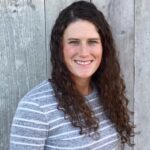 In her role as a Youth Director at North Shore United Soccer Club, you will find Shannon on the field working with both youth and high-performance players ages 3-23 years old. For the past 10 years, she has worked for the US Soccer Federation in the Coaching Education department to help implement methodologies and curriculums created to promote “free play.” Through a
In her role as a Youth Director at North Shore United Soccer Club, you will find Shannon on the field working with both youth and high-performance players ages 3-23 years old. For the past 10 years, she has worked for the US Soccer Federation in the Coaching Education department to help implement methodologies and curriculums created to promote “free play.” Through a 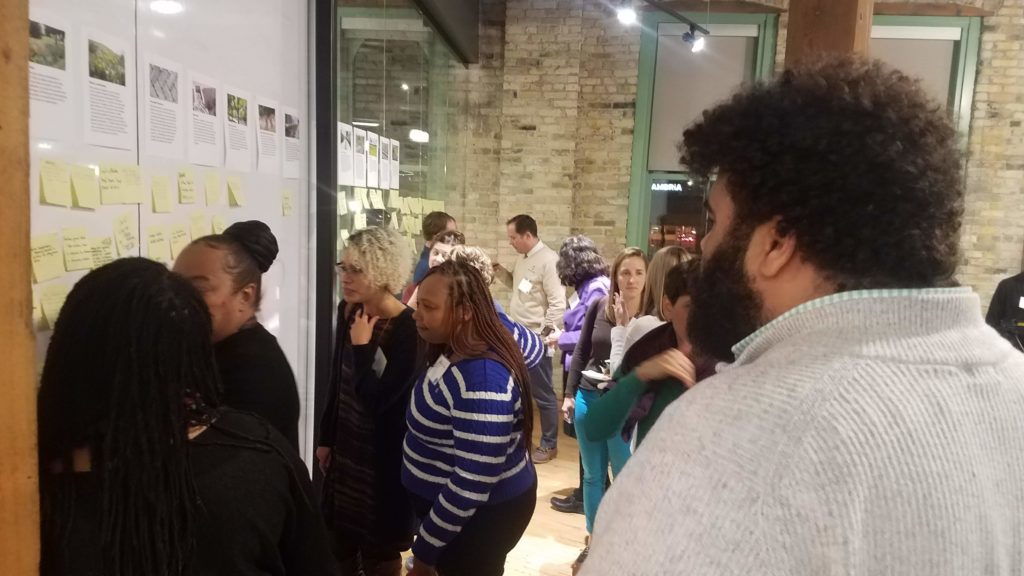
 A leader of agile software development projects at JCI, Amber is a passionate advocate for building high performance teams that look like and have roots in the communities they work in. The practices she uses to manage uncertainty, build trust and, and foster courageous conversations are central to her work. As the spouse of a high school teacher and with two children in MPS, she recognizes the value those practices can offer to both educators and students looking to take on real-world challenges.
A leader of agile software development projects at JCI, Amber is a passionate advocate for building high performance teams that look like and have roots in the communities they work in. The practices she uses to manage uncertainty, build trust and, and foster courageous conversations are central to her work. As the spouse of a high school teacher and with two children in MPS, she recognizes the value those practices can offer to both educators and students looking to take on real-world challenges. Kelsey is Marquette’s representative for engagement in the community, tasked to explore and promote community-engaged opportunities for Marquette students, faculty and staff. Previously she served as the Director of Innovation at the 707 Hub at Marquette University. There she ran business bootcamps for students and community entrepreneurs and helped to build a social innovation ecosystem in Wisconsin. She is naturally curious and enjoys connecting the dots between people, ideas and resources! She was recognized as one of Milwaukee Business Journal 40 Under 40 winners in 2019.
Kelsey is Marquette’s representative for engagement in the community, tasked to explore and promote community-engaged opportunities for Marquette students, faculty and staff. Previously she served as the Director of Innovation at the 707 Hub at Marquette University. There she ran business bootcamps for students and community entrepreneurs and helped to build a social innovation ecosystem in Wisconsin. She is naturally curious and enjoys connecting the dots between people, ideas and resources! She was recognized as one of Milwaukee Business Journal 40 Under 40 winners in 2019.
 Collab Lab 54 explored issues around youth mental health and violence. One of our largest groups to date, which included middle and high school student leaders, focused on factors that impact the degree to which students and teachers feel safe and affirmed at school. Matt Nink and Vanessa Rodriguez from
Collab Lab 54 explored issues around youth mental health and violence. One of our largest groups to date, which included middle and high school student leaders, focused on factors that impact the degree to which students and teachers feel safe and affirmed at school. Matt Nink and Vanessa Rodriguez from 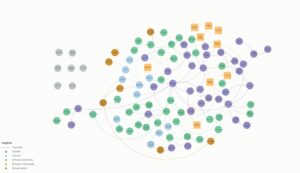
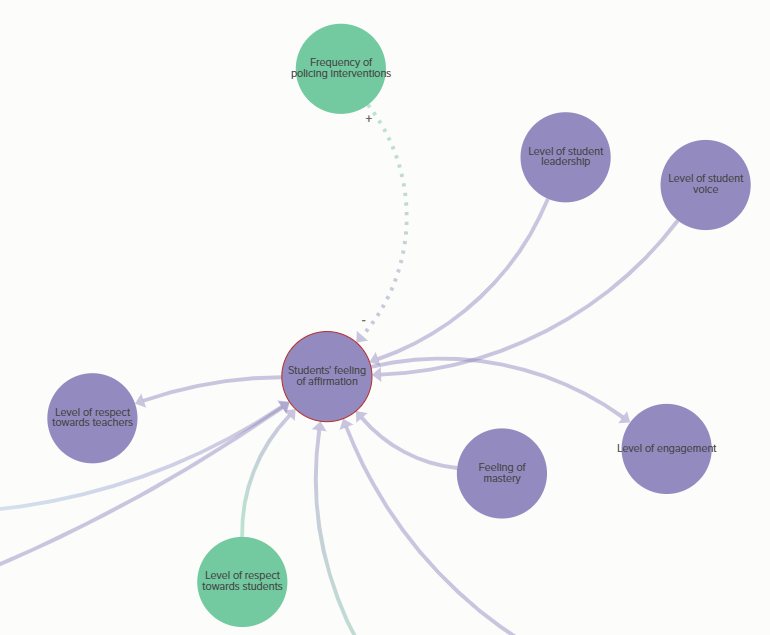
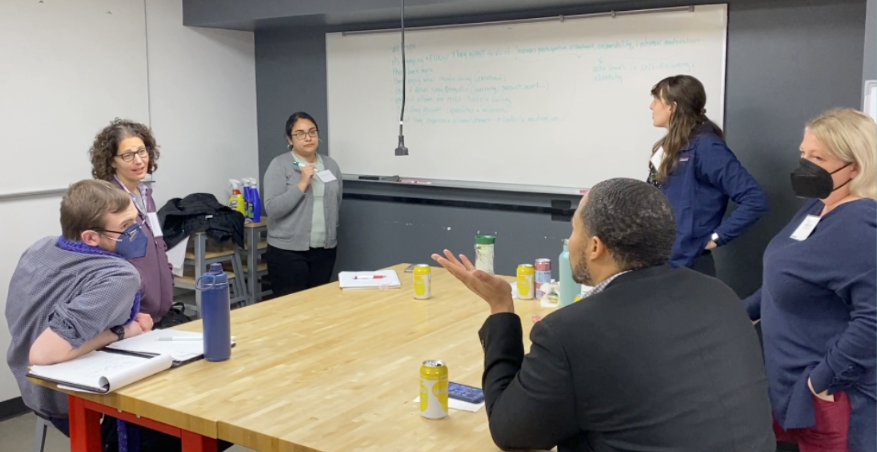
 Mike is an interactive designer and former VP and Creative Director of the Betty Brinn Children’s Museum. He currently splits his time between producing museum exhibits and running a small carpentry business out of his shop in Bayview.
Mike is an interactive designer and former VP and Creative Director of the Betty Brinn Children’s Museum. He currently splits his time between producing museum exhibits and running a small carpentry business out of his shop in Bayview. Anamarie is a Multidisciplinary Contemporary artist and artist educator currently based in Milwaukee originally from the deep south . She often intersects social justice, her identity, and interactive education to influence her paintings, installations, sculptures, and performances. With the experiences she has with community and through life itself, she builds her practice to relay that information visually to those interested in learning a variety of topics.
Anamarie is a Multidisciplinary Contemporary artist and artist educator currently based in Milwaukee originally from the deep south . She often intersects social justice, her identity, and interactive education to influence her paintings, installations, sculptures, and performances. With the experiences she has with community and through life itself, she builds her practice to relay that information visually to those interested in learning a variety of topics.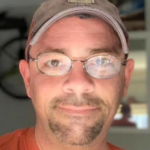 For the past eight years, Jeff has been working in interactive development alongside his business partner Hector Borges, first as the co-founders of Outer Rim, where they produced and released their first game in their first year of school. They operated under the name Outer Rim for four years before rebranding as Foresight Studios. In his role at Foresight Studios, Jeff is focused on creating innovative experiences that leverage new and emerging technologies, including VR, AR, and XR. The company has worked with the Holocaust Museum in Washington D.C. to create a VR demo and developed “
For the past eight years, Jeff has been working in interactive development alongside his business partner Hector Borges, first as the co-founders of Outer Rim, where they produced and released their first game in their first year of school. They operated under the name Outer Rim for four years before rebranding as Foresight Studios. In his role at Foresight Studios, Jeff is focused on creating innovative experiences that leverage new and emerging technologies, including VR, AR, and XR. The company has worked with the Holocaust Museum in Washington D.C. to create a VR demo and developed “ Dionna is a creative professional with extensive experience planning and executing commercial projects centered on graphic design, including brand identity and logo design initiatives. Developed at an early age, some of her artistic and creative abilities include illustration, painting, photography, and graphic arts. Her extensive background in visual and graphic arts has enabled her to serve in the creative arts industry for over 20 years. Her experience also includes the founding of a children’s book imprint, serving as author, publisher, illustrator, and designer. In addition, Dionna serves at ArtWorks for Milwaukee as Lead Artist to high school interns in the graphic design + mental health advocacy program. (website:
Dionna is a creative professional with extensive experience planning and executing commercial projects centered on graphic design, including brand identity and logo design initiatives. Developed at an early age, some of her artistic and creative abilities include illustration, painting, photography, and graphic arts. Her extensive background in visual and graphic arts has enabled her to serve in the creative arts industry for over 20 years. Her experience also includes the founding of a children’s book imprint, serving as author, publisher, illustrator, and designer. In addition, Dionna serves at ArtWorks for Milwaukee as Lead Artist to high school interns in the graphic design + mental health advocacy program. (website:  Cindy is passionate about instilling a love of nature, demonstrating the value of community, and embracing the curiosity and wonder in students. A strong advocate for project based learning, Cindy loves teaching children to communicate with their peers, collaborate on designs and solutions, and look to nature for inspiration. This year, The Riveredge School educators are partnering with the talented art educators at Lynden Sculpture Garden to create an integrated, interdisciplinary curriculum that is nature based and aligns with our science and social studies curriculum for every grade level. The arts integrated framework will enable students to explore the intersection of arts, culture and nature across the curriculum.
Cindy is passionate about instilling a love of nature, demonstrating the value of community, and embracing the curiosity and wonder in students. A strong advocate for project based learning, Cindy loves teaching children to communicate with their peers, collaborate on designs and solutions, and look to nature for inspiration. This year, The Riveredge School educators are partnering with the talented art educators at Lynden Sculpture Garden to create an integrated, interdisciplinary curriculum that is nature based and aligns with our science and social studies curriculum for every grade level. The arts integrated framework will enable students to explore the intersection of arts, culture and nature across the curriculum.